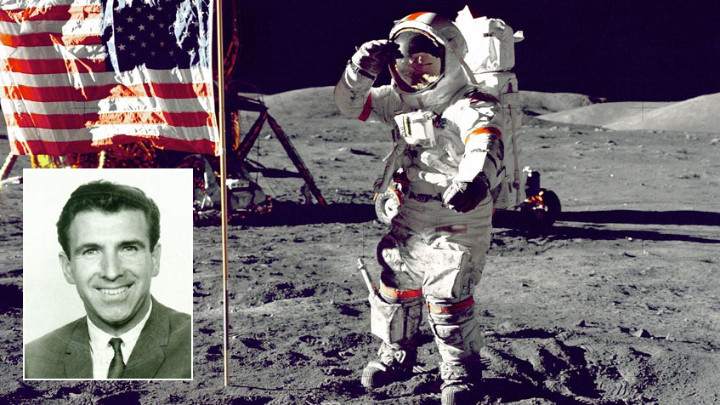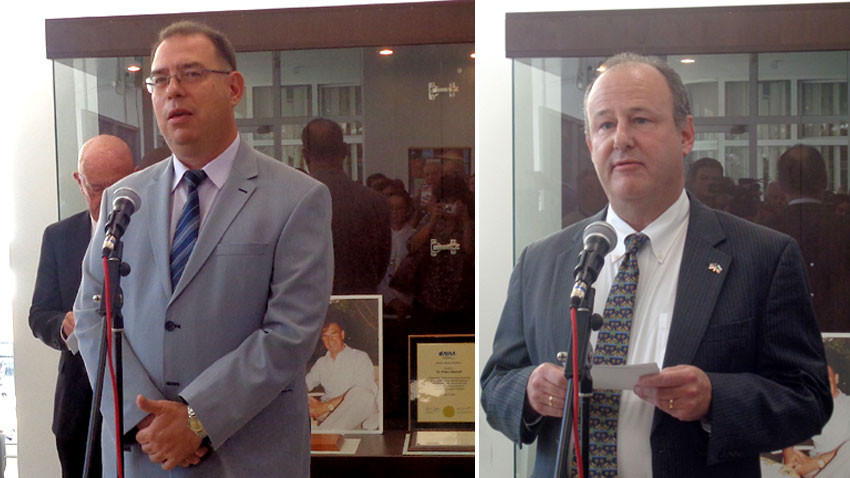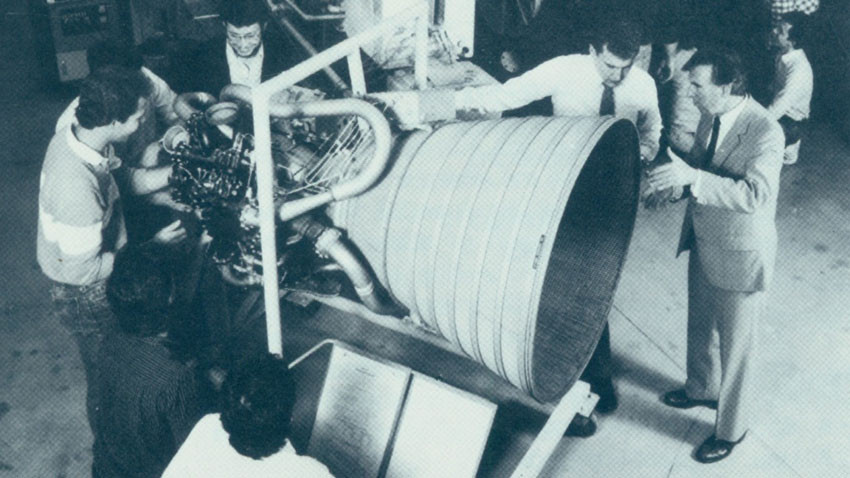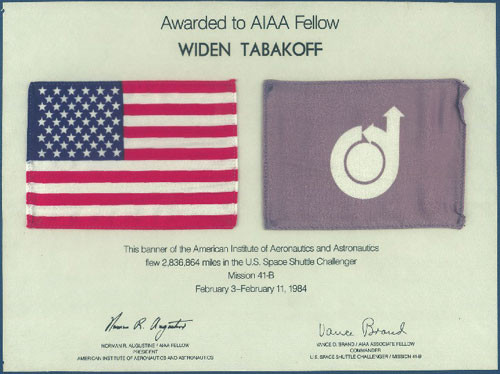
An exhibition named The Unlimited Space of the Human Mind was unveiled at Sofia’s hall of the Bulgarian National Archives. It displays the life and deed of remarkable American scientist Prof. Widen Tabakoff /1919 – 2015/. He was born in the Bulgarian village of Stakevtsi, Belogradchik area. Later on he studied technical science in Prague /1938 – 1942/ and then completed his PhD. in Aeronautical Engineering in Berlin, Germany in 1945. Over a short period Tabakoff worked with famous scientist and constructor Wernher von Braun, whose work pushed rocket and space exploration worldwide after WWII.
In the period 1948 – 1956 Widen Tabakoff lived in Argentine and worked on the creation of jet engines. After 1958 he lived and worked in the USA. He took part in the US space programme, teaching at the same time and carrying out scientific research in the University of Cincinnati, Ohio.
“I must admit that I was surprised myself when the documents on the really unique life and deed of this person arrived. Unfortunately, little was known on his existence in his motherland till recently,” Associate Prof. Mikhail Gruev, chair of the Archives State Agency (ASA) said at the unveiling ceremony. “We do hope that the society will get to know much more on his achievements now – starting from a small Balkan village and reaching out to outer space, to the latest technologies of his time that pushed mankind forward… We should be proud of this example and it’s worth shooting movies and writing books on the subject.”

The role of Prof. Tabakoff in the US space programme was to monitor the creation of such high-tech alloys that could bear severely high temperatures and corrosion, chief expert of the Archive State Agency Dimitar Popov explains. These alloys are a key moment in the creation of the carrier rockets which sent into outer space the Apollo spaceships – Prof. Tabakoff’s merit in this area was huge.
“Actually his work contributed to the sending of the first man to the Moon. That same person – Neil Armstrong would later on teach together with Prof. Tabakoff at the University of Cincinnati. It is hard to come up with a better story, covering the strong relationship between Bulgaria and the USA,” said H.E. Eric Rubin, Ambassador of the USA to Bulgaria. “The work with his students was no less important – he was the mentor of hundreds of students during his long career and many of them achieved in their turn great things in the area of space engineering… A scholarship has been set up on the name of the famous professor and I am happy with the fact that the next Widen Tabakoff, no matter his or her current place of residence, will be able to study, create and build up the future of Bulgaria”, Ambassador Rubin further said.

 Although the work of of Prof. Tabakoff for the National Aeronautics and Space Administration - NASA was basically classified, he had over 400 scientific publications. He loved to say that getting retired at the age of 65 was a waste of skills and knowledge, that’s why he continued lecturing until the age of 90. His last publication was released in 2017, two years after his death in 2015.
Although the work of of Prof. Tabakoff for the National Aeronautics and Space Administration - NASA was basically classified, he had over 400 scientific publications. He loved to say that getting retired at the age of 65 was a waste of skills and knowledge, that’s why he continued lecturing until the age of 90. His last publication was released in 2017, two years after his death in 2015.
“Prof. Widen Tabakov remains in history as a great researcher in leading technological areas – rockets, turbo engines, aerodynamics, rocket fuel, erosion, space flights etc.” Dimitar Popov says. “The Gas Dynamics and Propulsions Lab in the University of Cincinnati has been permanently named after Professor Widen Tabakoff as of 2009, as he was its founder. In 2014 Widen Tabakoff was proclaimed Honorary Professor from NASA for his achievements and overall contribution. Few experts naturalized in the USA can boast of such high recognition.”
The exhibition has been organized with the support of the Vision for Science and Technology Growth Foundation and is available till October 8.
English version: Zhivko Stanchev
Photos: NASA, Archives State Agency and Veneta Pavlova
There is a map which helped usher in the birth of modern Bulgaria during the Russo-Turkish War of 1877-1878. The Austro-Hungarian researcher Felix Kanitz (1829 – 1904) was the first West European to have travelled to more than 3,200 towns and villages..
On 3 March, Bulgaria celebrates the 147th anniversary of its liberation f rom five centuries of Ottoman rule. The day was declared a national holiday in 1990 by a decision of the National Assembly. The Treaty of San Stefano, signed on 19 February..
Today is Cheesefare Sunday. According to Orthodox tradition, this day is observed on the eve of Great Lent, when Christians seek and give forgiveness to each other . It is also known as Sirni Zagovezni because it marks the last day before Lent, when..
On 20 April, all Christians will celebrate the Resurrection of Christ. Against the backdrop of our divided and troubled world, Catholics, together with..
On Good Friday, the saddest day for Christians, the liturgy commemorates the suffering, crucifixion and death of Jesus Christ, who sacrificed..
Holy Saturday services begin on Friday evening with Vespers. The Church commemorates the burial of Christ the Saviour and His descent into hell to save the..

+359 2 9336 661
